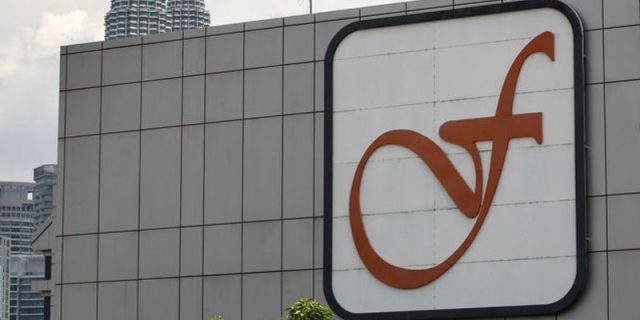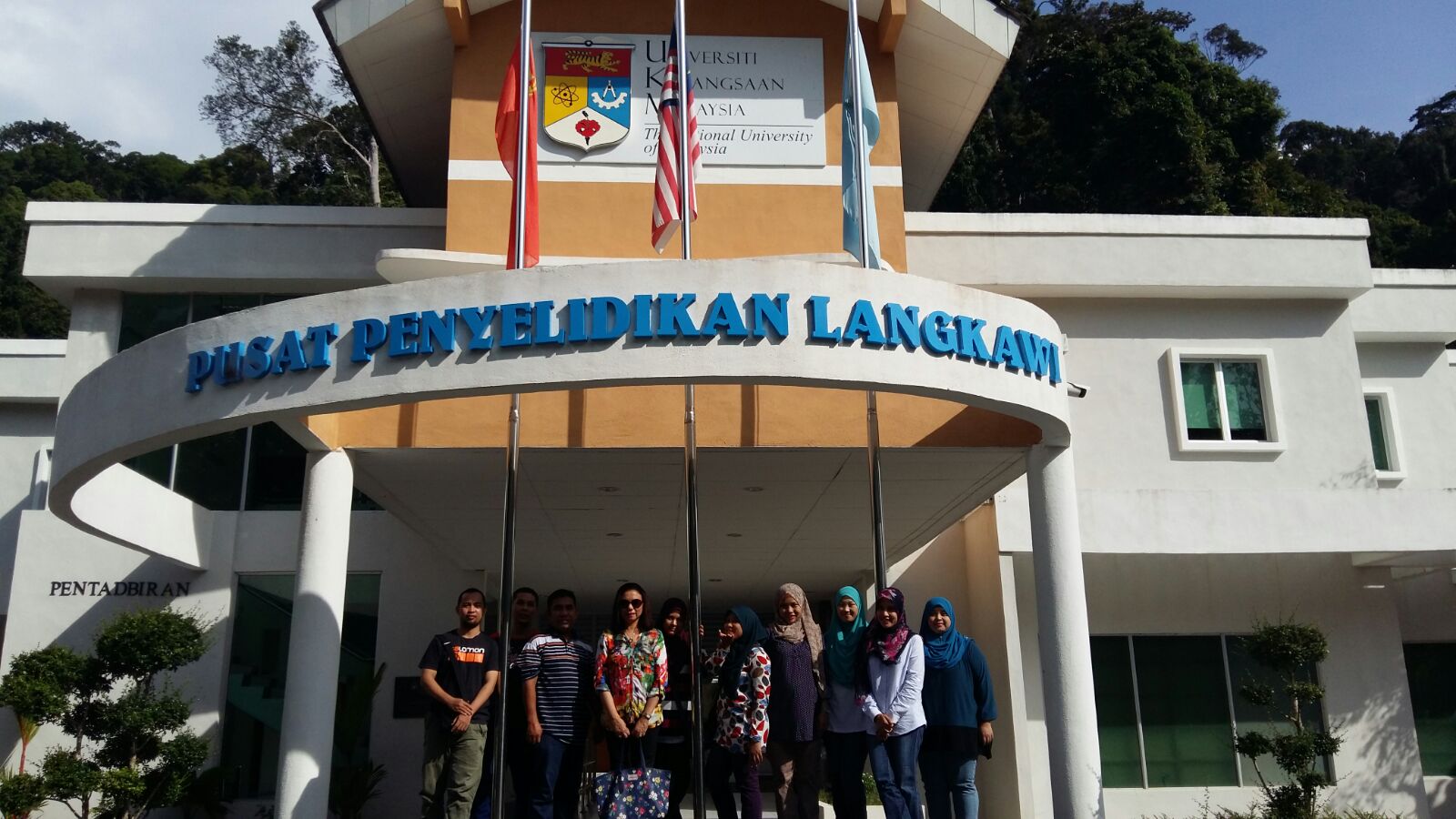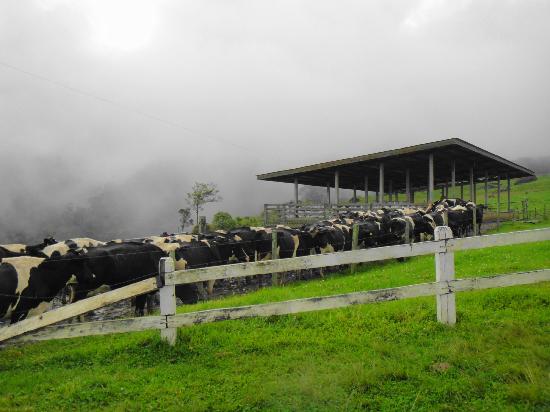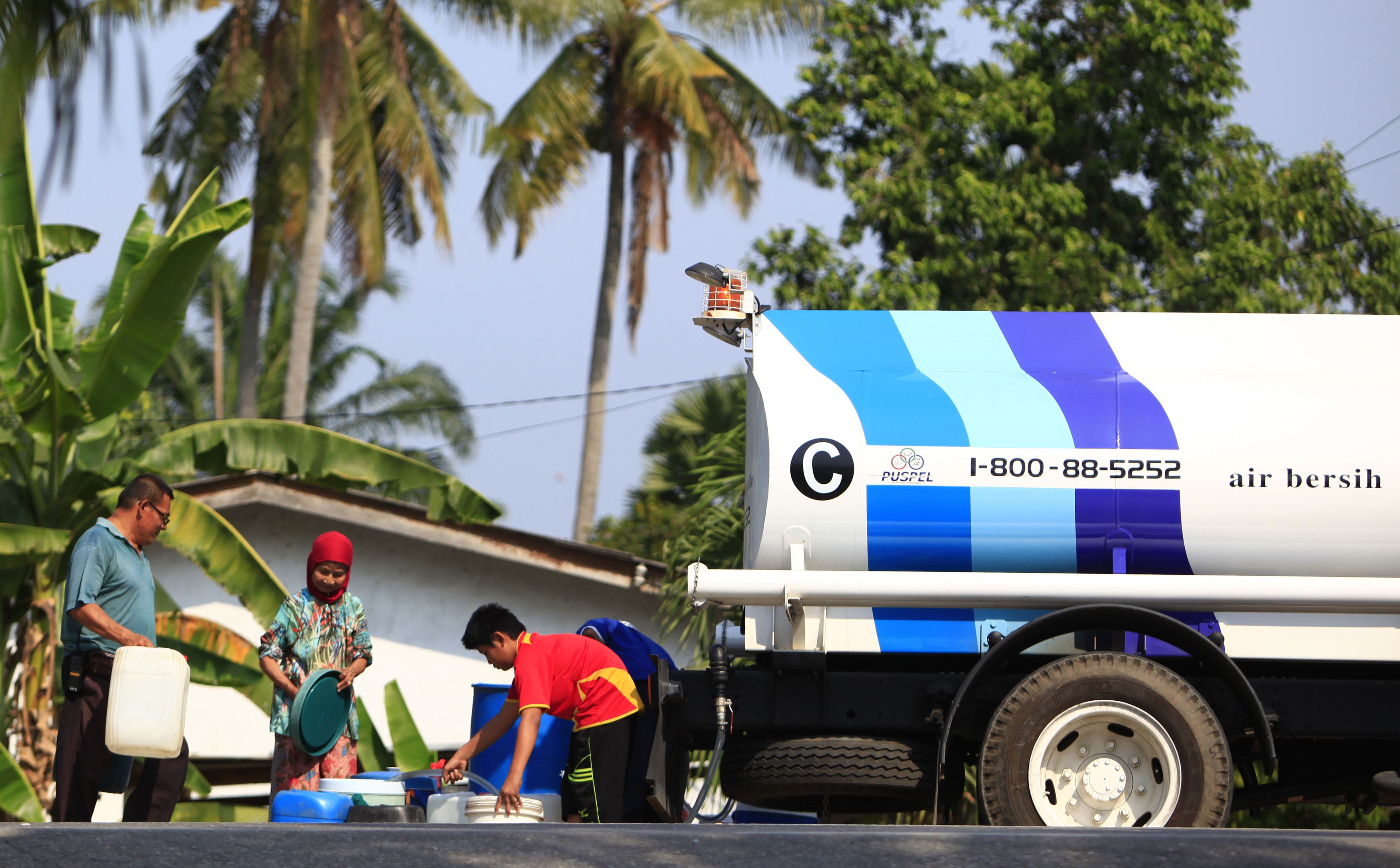The AG Report Is Out And Reveals How Millions Of Ringgit Was Wasted Due To Mismanagement
FELDA lost more than RM80 million due to poor project execution.
The 2015 Auditor-General's (AG) Report Series 2 was released on Monday, 21 November.
It outlined 247 recommendations to help the federal government, federal statutory bodies and state governments to realign their priorities and rectify their mistakes.
English daily Free Malaysia Today (FMT) reported Auditor-General Ambrin Buang as saying that 149 of the recommendations were for the state governments, 68 for the Federal Government, and 30 were for the federal statutory bodies.
"As in the past, the reports had earlier been referred to the department heads concerned for confirmation," said the AG in a statement on 20 November, as reported by FMT.
421 government and government agencies' financial statements have been awarded the Audit Certificate Without Reprimand based on the audits conducted while the remaining 40 are in various states of being audited.
16 financial statements were given the Audit Certificate With Reprimand while another 11 were presented with the Audit Report With Emphasis of Matter.
"Six financial reports are still being audited, three have not been confirmed due to late submission and incomplete supporting documents, and four have not been submitted for auditing," he said.
1. Felda Land Development Authority (FELDA) lost more than RM80 million due to poor execution of projects
Bernama reported that Felda has lost millions of ringgit due to poor planning and execution of projects such that the Light Detection and Ranging (LiDAR) data collection services, implementation of a broadband project, Sturgeon Fish Farming, Savaro Restaurant and Schneeballen Pastries projects.
The audit that was carried out between January and June 2016 revealed that the organisation incurred losses worth millions due to the poor planning, implementation, monitoring and management of projects that were also deemed unsatisfactory and have not met its set objectives.
For starters, 65 contracts for the procurement of LiDAR services worth RM148.42 million were singed by the Director of the Deparment of Land Management without the proper authorisation.
Making matters worse, the terms of all contracts for LiDAR signed by Felda with Bumitouch Sdn Bhd and Skyline Access Sdn Bhd were incomplete and important clauses were not included to safeguard Felda's interest.
Felda made the full payment of RM40.57 million for 53 out of 64 contracts with Bumitouch but the deliverables of LiDAR were not received.
The broadband project which cost RM566 million on the other hand were only completed up to the preparation of its blueprint worth RM40 million.
As for the Sturgeon Fish Farming, Savaro Restaurant and Schneeballen Pastries projects, it was mentioned that Felda did not do any feasibility study prior to the implementation of it leading to Feldo losing up to RM73.63 million.
In conclusion, the AG recommended that Felda plan its management of projects in a more detailed manner in the future to ensure complete implementation.
2. Health Ministry's management of medicine supply is "generally satisfactory", but the AG's report detected a number of medicine procurement contracts worth RM1.56 million that were not bound by formal contracts
In the audit that were conducted between August and November 2015, the AG's report found five out of the 45 medicine procurement contracts that were only based on Letters of Acceptance (LOA).
"Apart from that, 31 LOA procurement contracts reviewed at health departments, district health offices, and the state logistics pharmacy branches found that they were signed six to 34 days after the contract had commenced.
"The fine collection for late delivery of medicine under the Approved Price Product List (APPL) procurement contract and the ministry’s contract have yet to be resolved and there were no conditions stipulating fines on late delivery made by direct purchase," read the report, as reported by Free Malaysia Today yesterday, 22 November.
Delving further into the problem, it was reported that the verification for medicines at six locations were not conducted and the medicine stocks were not properly arranged at pharmacies. The AG report also found that Hospital Canselor Tuanku Muhriz (HCTM) in Kuala Lumpur has wasted drugs worth more than RM300,000 because they failed to do timely procurement planning.
"Fifteen per cent of 99 payment vouchers valued at RM490,000 in the Johor Baru health office and 67 of the 115 payment vouchers valued at RM1.55 million at Seberang Prai Utara health office were found incomplete as the Delivery Order and the Goods Received Note (eP) were not attached to the payment vouchers," read the report.
As a solution to these problems: the AG's report recommended that a fine should be established to ensure that the government does not incur losses over late procurement of medical supplies and that the health ministry should review their arrangement of medical stocks.
3. Water pipes worth RM10 million in six villages remain unused
The AG's report found that six water pipes that were installed under the government's Rural Water Supply Programme (BALB) lie unused and that there were weaknesses in the implementation of the programme by the Ministry of Rural and Regional Development, in terms of supplying clean water to these rural villages.
"A total of six villages of BALB reticulation project amounting to RM10.64 million were not utilised due to low water pressure; losses and non-functional water inlet valve; vandalism and end capped pipeline, said the report that was tabled in the parliament on 21 November, according to the Malay Mail Online.
It was further highlighted that piped water projects in 17 villages were not used properly due to various reasons such as the fact that the meters weren't installed, not transferred or incomplete installation.
A visit to 17 of villages with 404 houses in Negri Sembilan and Pahang found that 57.4% (232 houses) do not have water meter installed. 197 of these 232 houses belong to the Orang Asli people and RM9 millions have been spent to provide them with water supply but some of the indegenous people preferred to use the water from the river or their wells instead of paying RM90 and RM110 for deposit and installation fees.
To solve this problem, the rural and regional development ministry along with the Department of Orang Asli Development (JAKOA) have been trying to explain the importance of consuming and using clean, treated water.
Also, six out of eight projects that used alternative ways to supply water actually failed to supply water to these villages.
4. Universiti Kebangsaan Malaysian (UKM) has spent more than RM19,000 for eight loudspeakers that were not delivered to the university
The National Audit Department found that eight out of the 18 units of loudspeaker that were ordered and paid for by UKM were not delivered to the unversity's Langkawi Research Centre.
"An audit inspection on the payment voucher and claims by Bekal Hikmet Sdn Bhd found that UKM had paid all the costs for the loudspeaker supplies totalling RM44,292 without any payment cuts.
"This caused UKM to have overpaid by RM19,684 for equipment that was not supplied," read the report.
In response to the matter, UKM said that it has taken the necessary actions to recover the value of the unsupplied speakers by issuing a letter to its legal advisor for action on the staff member who had paid for the unsupplied equipment.
"The adviser has issued a letter to the Department of Development and Maintenance to obtain information regarding the replacement officer for the previous Project Supervising Officer that has retired and the officer who verified receipt of the goods and acknowledged payment," it said.
The report also noted that UKM's accounts and finance requires the head of responsibility centers to plan and control the department's spending.
5. A police training center that was to be built in Bentong, Pahang has been delayed for more than seven years
The AG report also revealed that a police training center project that was owned by the Home Affairs Ministry has been delayed for seven long years. AG has deemed the project that was supposed to be implemented by the Public Works Department (PWD) as "unsatisfactory".
The report mentioned that disorderly construction procedure, inapporiate design, unsatisfactory work quality and the ineffective monitoring by the Home Affairs Ministry and PWD has resulted in the delay of the project.
"Extension of Time (EOT) for first contract was approved 7 months after the original completion date. Project costs for second contract had increased inappropriately to RM12.88 million (including electricity cost worth RM3.8 million) due to the consultant’s failure in assessing remaining works," said the report.
New Straits Times reported that Works Minister Datuk Seri Fadillah Yusof as saying that the project is "sick" and that his department is monitoring it. It was said to be 63.5% complete in April 2016 and was targeted to be finished by 30 August.
6. The Dairy Cluster Project will not be able to achieve its goal of increasing Malaysia's milk sufficiency by the year 2020 due to poor management
The Dairy Cluster Project by the Department of Veterinary Services Malaysia (DVS) was aimed at reducing the country's dependency on imports of fresh milk by establishing local dairy projects under the supervision of DVS.
Milk tankers and milk quality laboratory were built in Sabah and Melaka respectively but none of it have been utilised for the past three years since it was built.
The project cost a total of RM709 million and the government funded 30% of it while the anchor companies funded the rest.
Sadly, due to death, theft, loss, being sold and unutilised cold chain equipment, dairy cattle were unable to breed, leading to a reduction in the number of dairy cattle.
The AG recommended the DVS to assess their methods of increasing the dairy cattle by selecting the most capable and committed farmers to ensure the success of the project.
"DVS and anchor companies should enhance the monitoring on procurement management of pregnant and infection-free dairy cattle, the retraction, death, loss or sale of dairy cattle, effective usage of cold chain equipment and recording system for assessing the performance of the dairy project," read the project.
7. Several weaknesses have been detected in the Lembaga Urus Air Selangor's (LUAS) management of water supply
Selangor has been experiencing various water problems for the past year.
Image via The Malay Mail Online"The weaknesses include shutdown of water treatment plants because of raw water contamination by ammonia, earth works and oil spills. Lembaga Urus Air Selangor (LUAS) also did not conduct works to measure the water flow at the main rivers to determine availability of supply at certain times, read the report, according to Bernama.
It also revealed that the department's efforts to increase alternative supply was limited to Selangor instead of being extended to both Klang and Langat. An inventory of the river water source contamination was also not provided.
8. The third Klang bridge which cost almost RM300 million was not completed according to plans
The bridge which had a ceiling cost of RM300 million was not completed as planned in July 2016 and the team has instead asked for an extension up to December 2016.
Weak planning was named as one of the main reasons on why the bridge could not be completed on time. The move has increased the cost of the project which from June stood at RM236.71 million.
"The delay in completing the project and additional cost could have been avoided if cost management was done and the issue of land acquisition was resolved before the project was implemented," read the report.
All in all, the report concluded that the federal government recorded a 0.7% decrease in revenue. The numbers led a budget deficit of RM37.19 billion of the Gross Domestic Product (GDP)
According to the Auditor General Report for 2015 (Series 2), the Parliament had approved R M221.72 billion as operating expenditure of which RM216.99 billion or 97.9 per cent was spent.
As for development expenditure, the federal ministries and departments had spent RM40.768 billion (99.4 per cent) out of RM41.025 billion of the approved allocation.
In 2015, only 16 ministries were rated as excellent, down from 20 ministries in 2014 and 23 ministries in 2013. However, performance of financial management by federal departments showed an improvement, with 22 out of 40 departments rated as excellent in 2015 as compared with 29 out of 51 departments in 2014 and 21 out of 45 departments in 2013.
Surprise checks were also conducted at 226 federal departments and offices at state and district levels, with findings showing that a number of offices did not fully comply with stipulated financial regulations.
The findings included mail registers, cash books and petty cash books not properly maintained or updated accordingly, surprise inspections not conducted as required, and power not delegated to the relevant officer in charge of the safe box.






